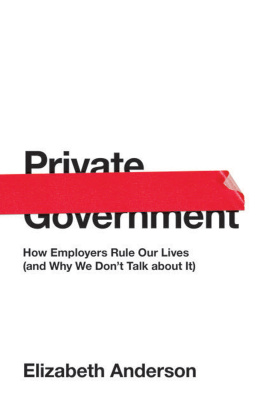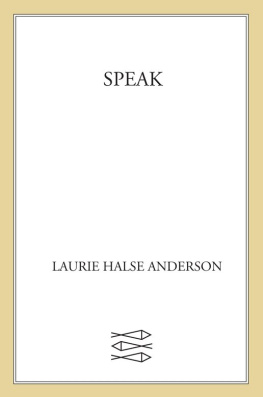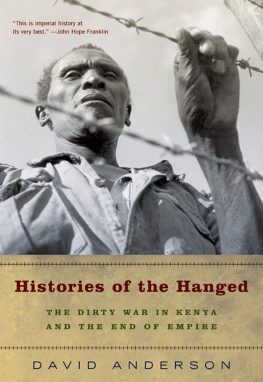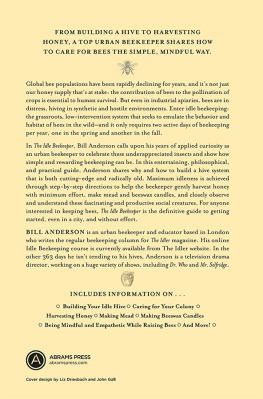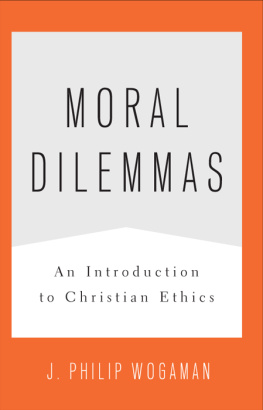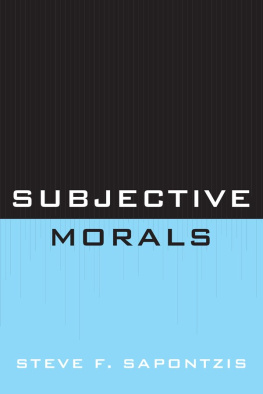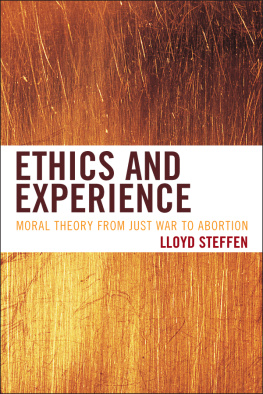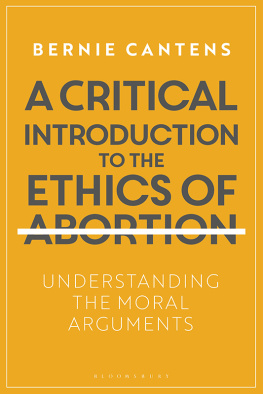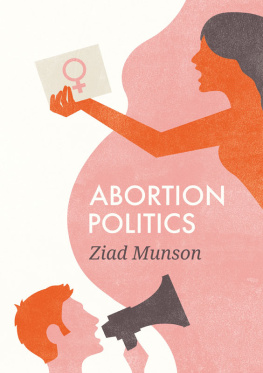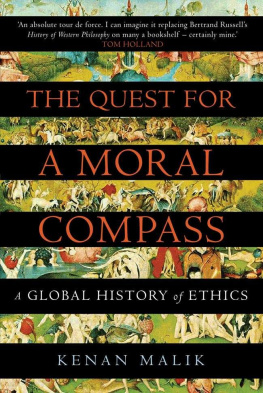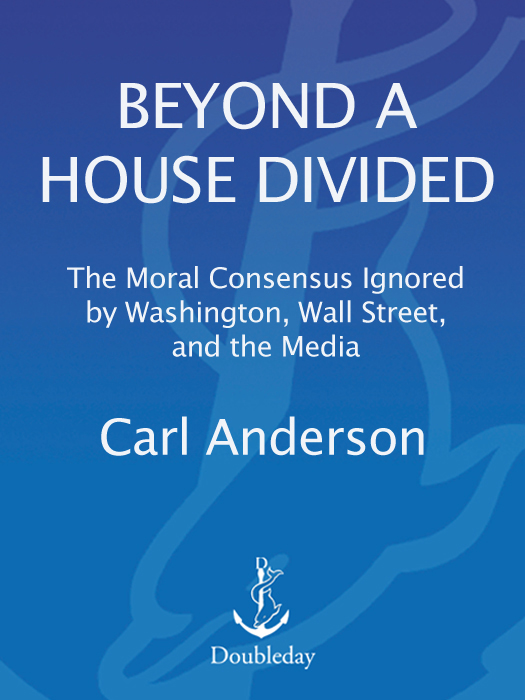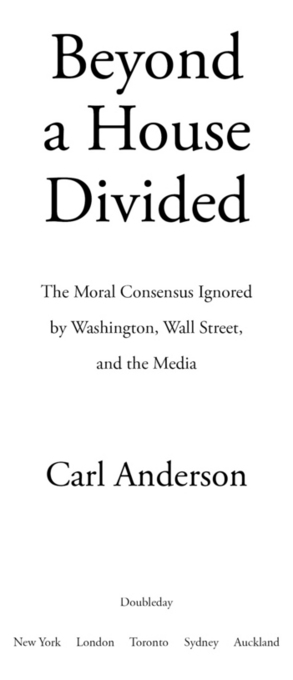
Copyright 2010 by Carl A. Anderson
All rights reserved.
Published in the United States by Doubleday Religion, an imprint of
the Crown Publishing Group, a division of Random House, Inc., New York.
www.crownpublishing.com
DOUBLEDAY and the DD colophon are registered trademarks of Random House, Inc.
Library of Congress Cataloging-in-Publication Data is available upon request.
eISBN: 978-0-307-88775-7
v3.1
Contents
Acknowledgments
Behind every book is a storya story of the countless people whose suggestions, ideas, research and hard work helped shape the authors ideas and words into the fruit of that labor you now hold in your hands. This book was shaped by the work of many whose input proved invaluable.
There are instances in life when a few words can have great meaning; finding the survey questions that are able to take the pulse of Americans values are just such instances. I am deeply grateful to Lee Miringoff and Barbara Carvalho and their team at the Marist Institute for Public Opinion, who lent their expertise and time to this project, helping bring all of us a clearer picture of who we are as Americans. Their experience and contributions were vital from beginning to end, as it has been in our cooperative work on creating the Moral Compass Project, 2008, a mutual effort that laid the foundations for, and shed light on, the many issues covered in this book. Barbara was especially helpful in guiding us through the data from our latest pollcompleted in late July 2010just weeks before the manuscript was due.
Trying to discover what Americans actually think on so many issuesthrough our own polling and the other survey data availablewas a massive undertaking. It could not have been accomplished without the able research staff members at the Knights of Columbus who were invaluable for their research ability and insights, and indefatigable in their work ethic. It took many long days and evenings to find and synthesize so much data, but the research team was more than up to the task. I owe a special thank you to each of the members of that research groupMatthew St. John, Maureen Hough, Elizabeth Hansen, Paul Ciarcia, Michael Brewer, Brian Caulfield and Chuck Lindberg. Their work with this material helped further shape and advance my own thinking on the topics covered by this book, while their level of professionalism and insight was impressive.
Guiding the work of that team and vital to this project was Andrew Walther, Vice President for Media, Research and Development at the Knights of Columbus. In addition to overseeing our polling over the past two years, his unique combination of insight, energy, and candorand his feedback on each draft of the manuscriptadded significantly to this book, while he simultaneously managed the often difficult task of keeping the production on schedule.
Part of the beauty of books, made more pronounced in the digital age, is the physical design and layout, and in this area Michelle McCleary surpassed herself. She has made each page a physically attractive place for the ideas it contains, and I appreciate all she did, her talent and the hard work it took to achieve this.
Working with Trace Murphy and Doubleday on this project, as on previous books, was a truly great experience. Publishing is Traces passion, and he brings that and his commitment to excellence to every project. I am very grateful for the assistance, thoughtful advice, critiques, flexibility and accessibility he provided me and this manuscript, as well as his excellent and most valuable support. I am indeed fortunate to have him as my editor.
To all of these individualsand to the many other people who had some role in the production of this bookmy heartfelt thanks.
Foreword
Every book has its purpose, its niche, its raison dtre. This one was written to contribute to the national conversation about what direction the country ought to take based not on a partisan political approach, but on the moral senseand consensusof the American people.
The title of this bookBeyond a House Dividedis, of course, a reference to the famous warning of our 16th president. Speaking as his partys candidate for the U.S. Senate in Illinois in 1858, Abraham Lincoln cautioned of the implications of the debate on slavery saying, A house divided against itself cannot stand. I believe this government cannot endure, permanently half slave and half free.
Today, while many see America as a house divided over issues of every kind, our surveys have found something very different: unity among the American people based on a moral core of values and ethics. The American people have reached a consensus unitedeven if some of our institutions have not.
Lincolns opening words that night in 1858 set the tone for this book. If we could first know where we are, and whither we are tending, we could then better judge what to do, and how to do it. This is why we have asked the questions we have, in the hope that the answers will help us learn what to do and how to do it.
Rather than starting at the political poles and moving toward the center on the basis of compromise, this book will argue for a different starting point, for beginning our conversation where the vast majority of the American people stand and seeking first the common ground already found in the common sense of a consensus of the electorate.
This is not an attempt to be the last word onor the most in depth look atevery contentious issue in the United States today. It is instead intended as a photo album filled with a series of snap shots of the senseand in many cases the overlooked consensusof the great majority of the American people. To provide these snap shots, we have looked at recent polling data both our ownconducted by the Marist Institute for Public Opinion since 2008 as part of our Moral Compass Projectand those of other key pollsters including Gallup, Rasmussen, Pew and Zogby. In sifting through a huge volume of polling data, and in asking in our own polling more detailed questionsor focusing on areas not typically treatedwe believe we have something meaningful to add to the discussion of American values and to the arguments of the many who have written about our nation as more than just a series of red and blue states.
In dealing with many high profile issues, we have found consensus where conventional wisdom would have us believe it is most unlikely: on the issues of religion in public life, abortion, marriage, and the role of government, among others. Far from a house divided, Americans areon issue after issueunited in their common beliefs.
The purpose here is not to suggest that we should have government by pollingusing polls crassly for political advantage on one issue or another. Rather, this book uses polling to show that Americans share key values, that our values as Americans are not unlike those on which this country was founded, and that the morality of decisions continues to be very important.
Since this is a book about American values, we have chosen for our definition of consensus one endorsed by the Founders of the country: a two-thirds majority, which is the number needed to over-ride a veto or ratify a treaty. In those areas where the consensus is even greaterthree-quarters or morewe feel comfortable declaring a super consensusthat is, a sense held in common by an overwhelming majority of the American people.


